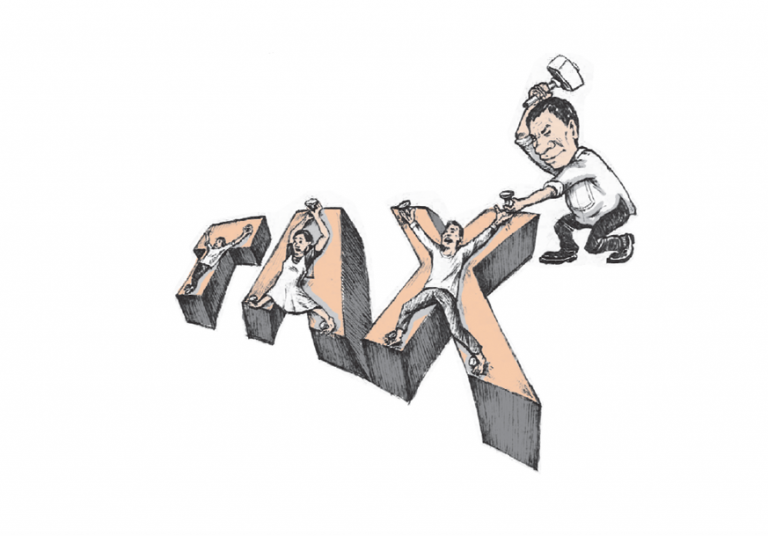
In a consumer forum held in anticipation of the third State of the Nation Address, research group IBON debunked the Duterte administration’s avid defense of the Tax Reform for Acceleration and Inclusion (TRAIN) Law. The group said that contrary to government’s pronouncements, the tax program is not beneficial to the poor majority of Filipinos and should be halted.
Government’s economic managers have repeatedly boasted that TRAIN puts more money in people’s pockets. The economic managers insist that TRAIN’s impact on inflation is negligible and that the poor are even further protected by TRAIN’s unconditional cash transfers (UCT). TRAIN also purportedly funds infrastructure projects and social mitigating measures that will benefit the people.
“On the contrary,” IBON executive director Sonny Africa said, “TRAIN only puts more money in the pockets of at most 5.5 million Filipino families gaining from the law’s personal income tax cuts. The country’s poorest 17.2 million households do not benefit from lower personal income taxes but all pay higher consumer taxes. This means less money in the pockets of the poorest 8 out of 10 Filipinos (76%).”
“The provision of the temporary UCT is actually an admission of TRAIN’s impact on the poor”, said Africa, “and its benefits should not be overstated because the UCT will end in 2020 yet the higher prices due to TRAIN will remain and continue to burden the poor.” As it is, over six months into TRAIN’s implementation, the Department of Finance (DOF) can only report 3.8 million out of the l0 million poor families targeted having been reached. Africa added: “The temporary UCTs are in stark contrast with the personal income tax cuts on higher income groups which not only remain but become even bigger in 2023.”
While noting that changes in global oil prices and foreign exchange impact on inflation, Africa pointed out that the Duterte administration cannot pretend that these are unexpected because global oil prices have been steadily rising since 2016 and the peso has been steadily depreciating for even longer since 2013. “The Duterte administration and its economic managers were grossly insensitive in pushing the TRAIN Law despite these trends and are thus directly accountable for the TRAIN-driven price increases of commodities,” he stressed. “Government’s imposition of consumption taxes, including excise taxes on oil and sweetened beverages, greatly aggravated the current inflation,” Africa said.
Africa also pointed out that while the TRAIN law lists transport and military infrastructure, sports facilities and potable drinking water supply to be funded by TRAIN, official records show that 94% of the value of government’s 75 flagship projects under the Build, Build, Build program are transport-related. Of these, 52.1% are railways, 27.3% are bridges and roads, 8% are airports, 5.2% are mass transit, and 1.6% are seaports. “These big-ticket projects are lucrative endeavors that will profit big-time firms,” said Africa.
The growing clamor against the TRAIN law because of the onslaught of rising prices of basic goods and commodities shows that consumers are not buying the government’s repeated hype about TRAIN, Africa said.
“TRAIN’s Package One is the government’s first big step towards creating a regressive tax system that is biased for the rich while heavily burdening the poor. It will be followed by Package Two which reduces the corporate income tax in the same way that Package One reduced the personal income tax. These clearly illustrate how biased the Duterte administration’s programs are against the poor,” Africa concluded. ###